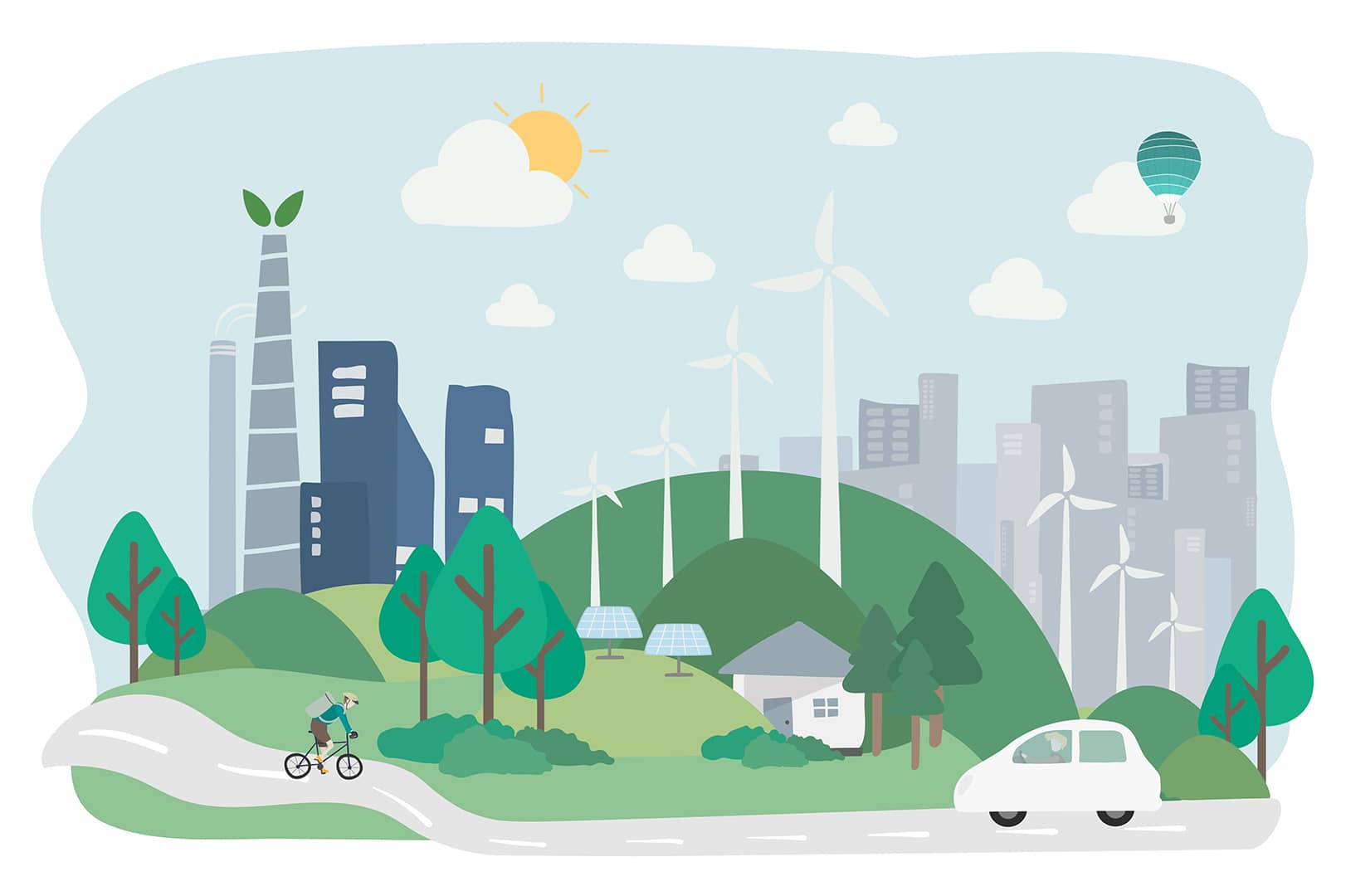A new trend in the labour market: “green job”
by Gamze Orhun

photo source – Sustainable icon vector created by rawpixel.com – www.freepik.com
Nature and work have a very close connection. During the pandemic, the whole world has seen that our life deeply depends on nature and the business world depends on a healthy environment. We can witness that mankind has already exceeded the limits of nature’s endurance. Therefore, our future depends on an economy with less ecological footprint and on an efficient use of resources.
In recent years, the amount and intensity of natural disasters told us that we are on the wrong track. So, apart from our daily life, we need to change our economic life: these two will have to merge.
This is where the term “green jobs” comes in. ILO has defined green jobs as decent jobs that contribute to the preservation and rehabilitation of the environment by embedding one or more of the followings: improving energy and raw material efficiency; limiting greenhouse gas emissions; minimizing waste and pollution; protecting and restoring ecosystems; and supporting adaptation to the effects of climate change. According to the ILO report, “greening” the global economy will create an additional 24 million jobs by 2030, a net increase of 18 million.
Green change has given rise to another need and consequently another talent: the “green talent”. The World Economic Forum has defined green talent as: “someone who has at least one skill explicitly listed in their profile that our expert taxonomists have classified as a “green skill”, and/or works in a job that we consider a “green” job. Green skills are abilities that a worker can use to prevent, monitor, or mitigate pollution and to optimize the management and conservation of natural resources that companies use to produce goods and services”.
Considering the above definition, we can say that the future of work also depends on the green world: green jobs, green talent. In order to be successful in the future, companies must change the way they work and become greener; while people who are already in the labour market, and in particular the younger generation, should invest in becoming a green talent.

